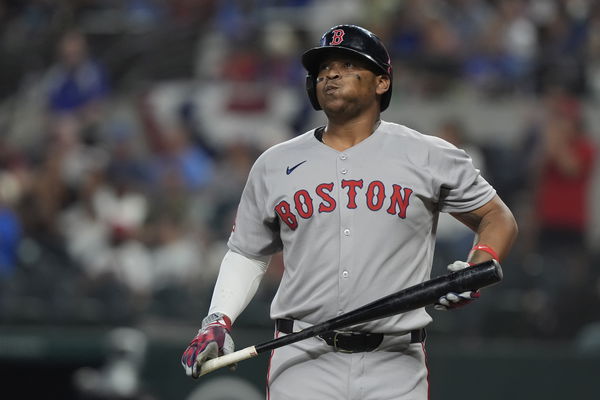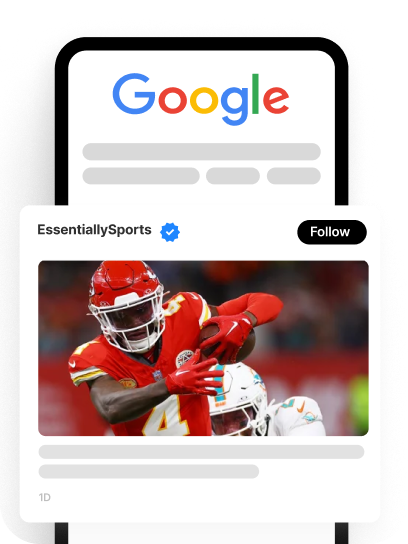
Imago
Credit: Michael Dwyer/Associated Press, Barry Chin/Globe Staff

Imago
Credit: Michael Dwyer/Associated Press, Barry Chin/Globe Staff
The most historic ballparks, those steeped in decades of cheers and legendary triumphs, can suddenly become stages for bitter, public feuds. This month in May, Fenway Park’s usually vibrant atmosphere was pierced by such a sour note. Chief Baseball Officer Craig Breslow and star slugger Rafael Devers suddenly found themselves in the uncomfortable spotlight. The unfolding dispute wasn’t merely about a position on the field; it chillingly hinted at deeper and more painful fractures threatening the historic Red Sox franchise.
Watch What’s Trending Now!
The drama reached its climax during the Red Sox’s visit to Kansas City. First baseman Triston Casas suffered a season-ending blow and manager Alex Cora initially dismissed the idea of moving Devers to that position, stating, “He’s my DH.” However, in an interesting turn of events, Breslow asked Devers to consider playing first base. And then? “Now, they should do their jobs essentially and hit the market,” Devers asserted as he denied switching the position.
Making matters worse, Devers even questioned if Breslow had a personal “issue” with him. This public defiance, from a player on a $313.5 million contract, immediately sparked trade rumors, further unsettling the Red Sox Nation.
Adding fuel to the fire, popular baseball analyst Ben Verlander recently didn’t hold back on his ‘Flippin’ Bats’ podcast. “Rafael Devers should play first base, and he’s handled this very poorly,” Verlander said. He strongly suggested Devers should “stop talking” publicly. Verlander advised handling such matters “behind closed doors with the organization.” As far as the position is concerned, Verlander said Devers “should do whatever is in the best interest of the team to help them.”
Verlander went on, speaking directly about the reported unwillingness of Devers. “He says I’m not doing it. I am not going to learn all these new positions. What?” Verlander exclaimed. And he clarified the team’s request, stating, “They’re not asking you to play every position…They’re asking you to play first base.” He further pointed out, “You’re a third baseman. The transition to first base from third base is an easy one.” Verlander even downplayed the difficulty, adding, “You’ve got to figure out how to scoop some balls. They’re not asking you not to make an error over there.”
Verlander’s comments bring to mind the many transitions that have played out on diamonds across the league, where the move from third to first is often viewed as a rite of passage rather than a hurdle.
Rafael Devers’ defensive crossroads
Shifting from third base to first base is usually seen as manageable in baseball. First base generally demands less defensive wizardry than the “hot corner.” Think back, for instance, to Vladimir Guerrero Jr. — he transitioned successfully from third base early in his Blue Jays career. Even Michael Busch recently found a regular first base role with the Cubs. However, Pedro Alvarez‘s move for the Pirates showed that a lack of prep makes it tough. Devers, with “zero innings as a big leaguer” at first, faced a steep learning curve mid-season. This situation clearly needed careful handling.
Devers has had his own lapses at third base, leading the league in errors on multiple occasions (24 errors in 2018, 14 errors in 2020, 22 errors in 2021). His DRS was in the negatives each season. But his bat always sang a powerful tune. His offense was consistently above average throughout his career, at least at third base. His career .279 average, .347 OBP, and .510 SLG with 207 homers are potentially elite production. Maybe considering that offensive consistency on defense might have given Devers a different perspective on the team’s urgency.

With Casas out, Boston’s first base options looked bleak. Romy Gonzalez (.308 AVG, 0 HR) and Abraham Toro (.167 AVG, 1 HR) were temporary fixes at best. Breslow acknowledged they’d “look both internally and potentially externally.” Dom Smith, who took over for Casas in 2024, was mentioned as a possibility. But it’s tough to find a productive first baseman in the midseason. The Red Sox obviously needed a better plan. That scarcity, no doubt, fueled their hope that Devers might reconsider.
But we also have to take into account the monster production Devers provided as a full-time DH in 2025. Before the controversy fully erupted, “Raffy Big Stick” was batting around .280, with a stellar. 398 OBP and. 490 SLG. His 7 homers and 31 RBIs in the middle of May were worth a wRC+ of nearly 150 — that is, he was 50% better than a league-average hitter. Cora himself observed that Devers “found a DH routine that works with him.”
And most importantly, with all of that going on behind the scenes, the Red Sox were surprisingly competitive. As of May 13, they held a 22-21 record, second in the AL East. They had a +17 run differential, scoring 207 runs while allowing 190. That’s toughness, and it speaks about how good the core of this team is. However, resolving the Devers rift and the first base void remains critical. Can the Red Sox find a first base solution? Their season could be shaped in the next couple of weeks.
